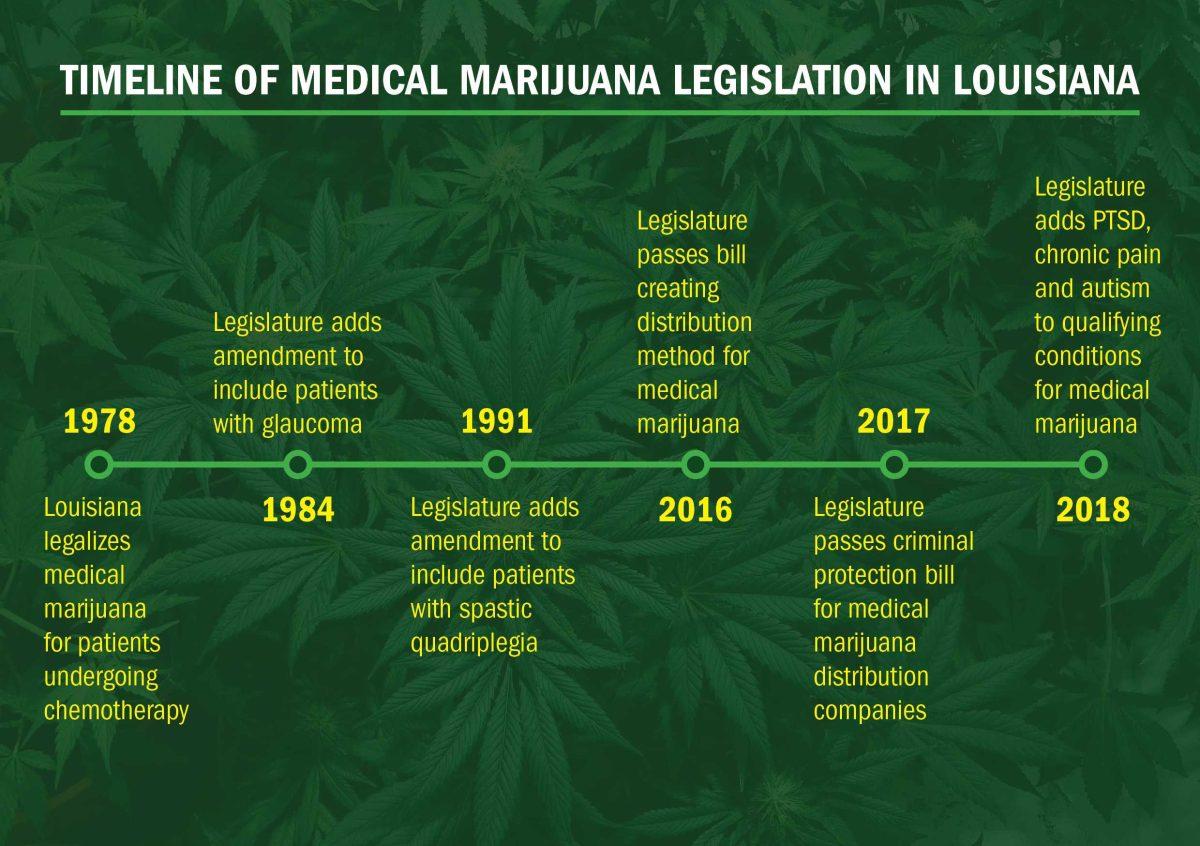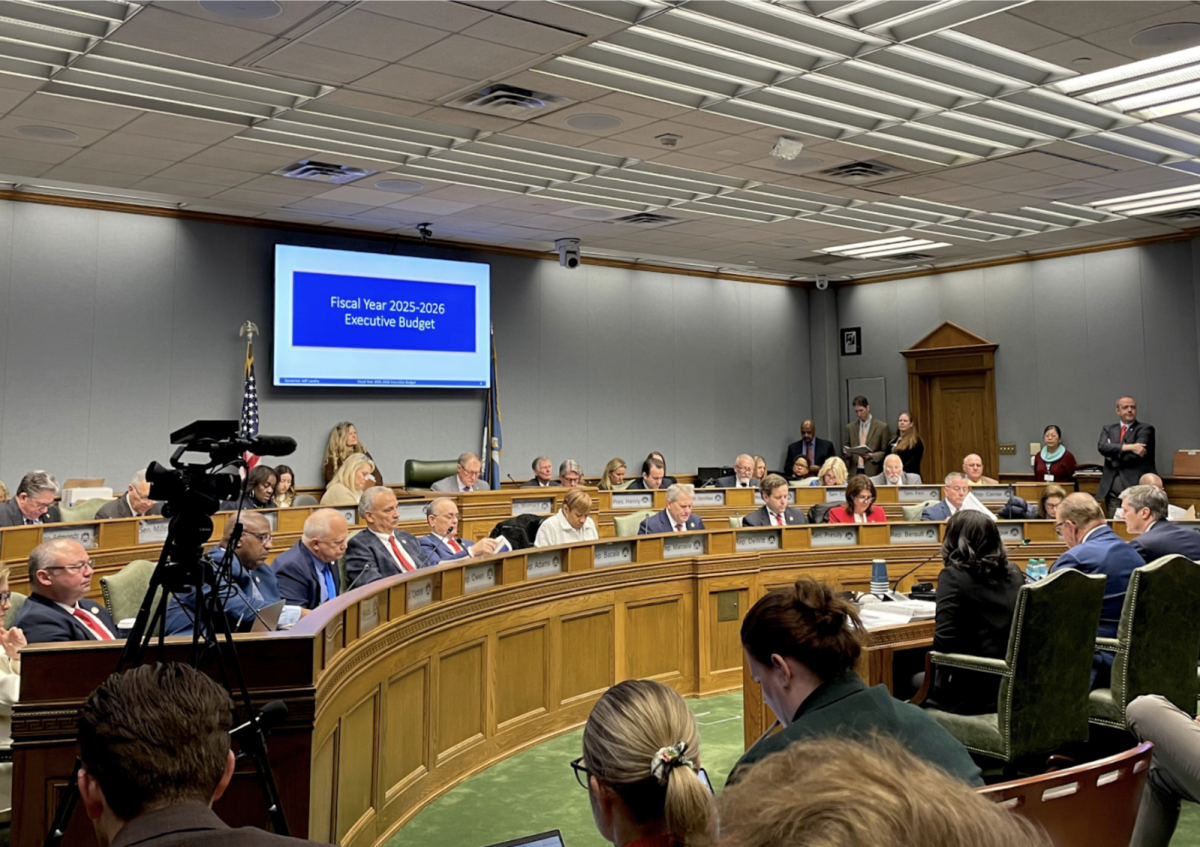Politicians who oppose the legalization of marijuana often cite their fear of moral decline or the “gateway” to harder drugs. However, one LSU alumnus has worked to show the state of Louisiana that marijuana can help people as much as it can “hurt” others.
Baton Rouge attorney Jacob Irving has spent his career working to make medical marijuana available in Louisiana. Irving, who graduated from the LSU Paul M. Hebert Law Center in May 2018, was diagnosed at birth with spastic quadriplegia, a specific type of cerebral palsy involving spasticity in all four limbs. While technically considered a disability, the condition has been the catalyst for Irving’s career of advocating for and enabling medical marijuana usage in the state.
Most recently, Irving worked on a bill to legalize pharmaceutical grade inhalers filled with marijuana for patients who need a rapid delivery method. The Senate on June 4 voted 31 to 7 in support of the bill, which will go back to the House where members have overwhelmingly agreed to the inhalation proposal, according to Associated Press.
The bill passed in the Senate after a lot of debate and the addition of an amendment to spell out the metered-dose inhalers that would be allowed. Lawmakers previously agreed to a framework for the dispensing of medical marijuana nearly four years ago, but regulatory problems and friction between growers and the state persist. Irving has worked to overcome such obstacles, one bill at a time.
Louisiana first legalized medical marijuana in 1978 for patients undergoing chemotherapy, with amendments in 1984 and 1991 to add glaucoma and spastic quadriplegia, respectively. The statute set up a legal entitlement so people suffering from those conditions would be allowed to legally possess marijuana but it did establish how they could obtain marijuana legally.
In 2014, Irving testified in favor of a bill that created a distribution method of sorts. With only two votes, he and his team were defeated. However, he returned in 2015, succeeding in creating a distribution system. However, at the last minute, an opposition member rendered the bill inoperable by adding a piece of language — the word “prescription.”
“You can’t prescribe marijuana, you have to ‘recommend’ it,” Irving said. “I came back in 2016 and we did a bill that switched the word ‘prescription’ to ‘recommendation’ to make the bill fully functional. So, in 2016, the bill became fully functional.”
Though the 2016 bill passed, patients still have not been able to access any medical products in the state. LSU and Southern University accepted the right of first refusal to have the grow-production license at the end of 2016, but regulations and restrictions have made it to where medical marijuana still hasn’t hit the Louisiana market.
“LSU and Southern University have partnered with private companies to produce and process marijuana, which is sold to nine special pharmacies scattered across the state,” Irving said. “We have 18 qualifying conditions and they can get medical marijuana as an oil, tincture or edible. The product is supposed to come out next month, so after that, there should be product available for patients in Louisiana.”
As the Louisiana market has prepared for medical marijuana to reach patients, Irving has worked to expand the legislation so that everyone in need will be able to obtain the product when it goes to sale.
In 2017, Irving created a criminal protection bill so that different companies and production licenses available could operate complicity within the law. In 2018, Irving created another bill to add PTSD, chronic pain and autism as qualifying conditions. At the time, he was working with several patient advocacy groups who were interested, including military veterans and Mothers Advocating Medical Marijuana for Autism. At the end of 2018, the bill passed successfully.
In addition to supporting medical marijuana through legislation, Irving previously worked as the executive director of the Louisiana Association of Therapeutic Alternatives, a trade association for the marijuana industry representing all nine medical marijuana pharmacies. He has also counseled local businesses and groups to ensure they are abiding to current laws.
Many people may view marijuana as a drug meant for the irresponsible, but Irving hopes that medical marijuana is readily and lawfully available to people who suffer from protected conditions under the bill and would benefit from it, much like himself.







